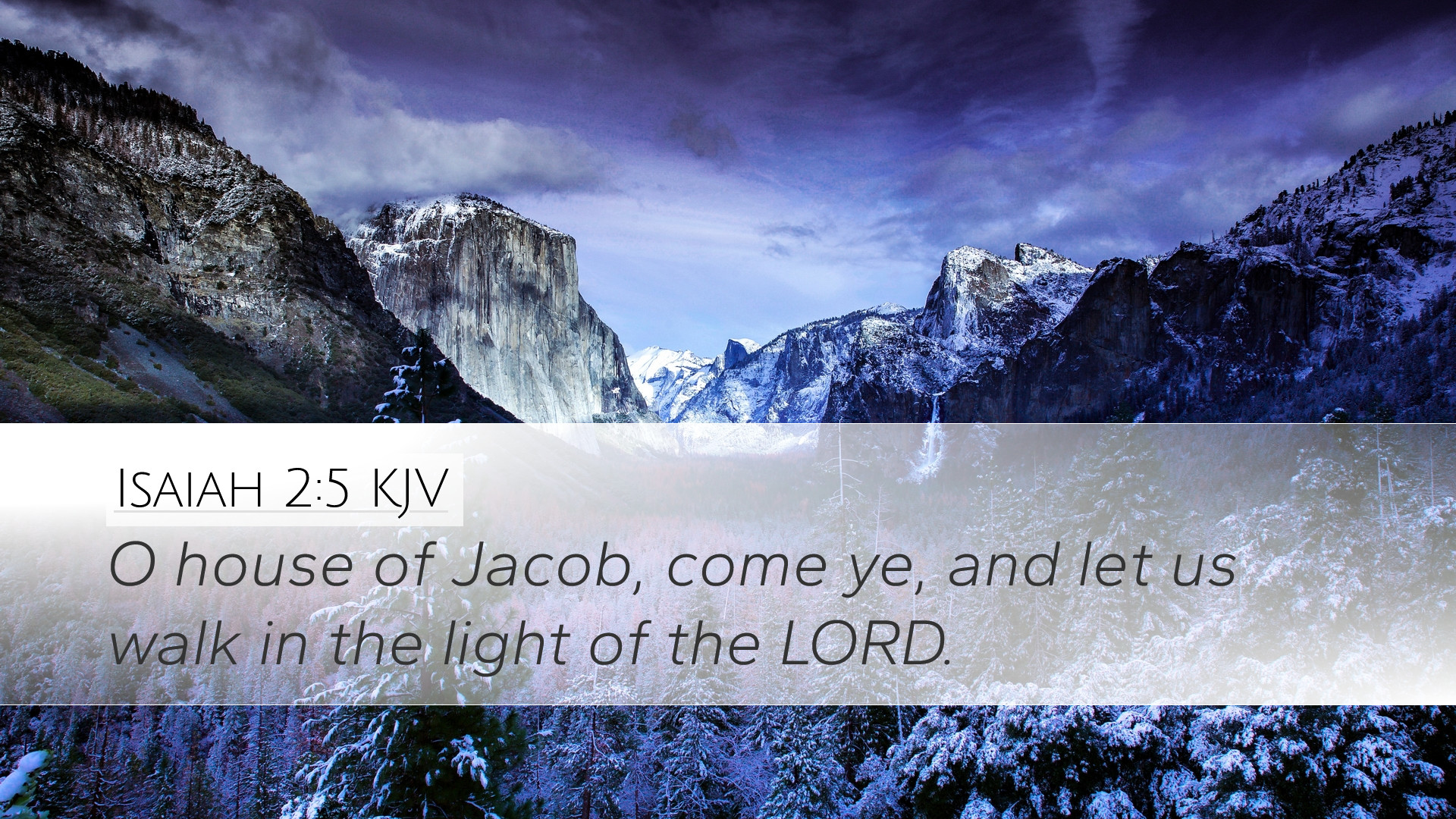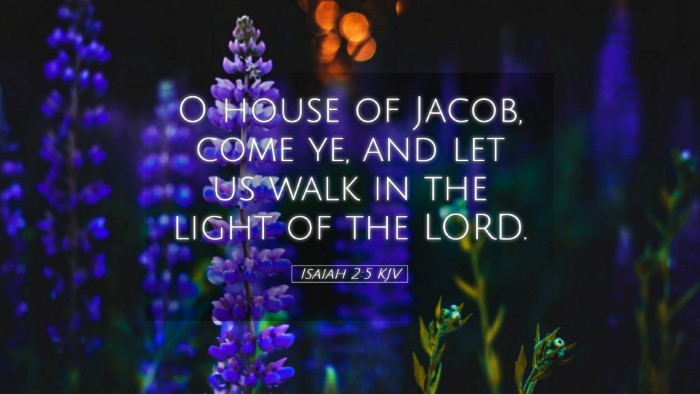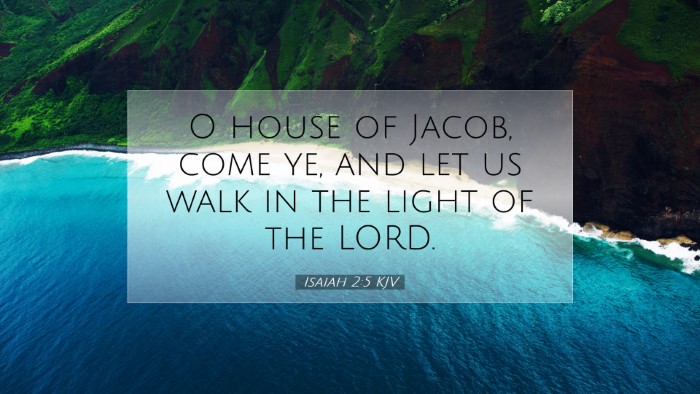Commentary on Isaiah 2:5
Verse Context: Isaiah 2:5 reads: "O house of Jacob, come ye, and let us walk in the light of the Lord." In this verse, the prophet Isaiah invites the people of Israel, specifically the house of Jacob, to embrace a life that is guided by the divine presence and truth of God.
Historical Background
The prophecy of Isaiah is set within a turbulent period in Israel’s history characterized by political strife, idolatry, and moral decay. Isaiah calls the people not merely to repentance but to a renewed commitment to living in accordance with God's will, symbolized by “walking in the light.”
Thematic Elements
- The Call to Walk in Light: The phrase "walk in the light of the Lord" signifies a life that is discerned by divine revelation and moral clarity. Henry emphasizes that this call invites believers to leave darkness behind, suggesting a radical transformation from ignorance and sin to knowledge and righteousness.
- Identity of the House of Jacob: Referring to the descendants of Jacob, this term encompasses the entirety of Israel—a national identity intertwined with covenant faithfulness and divine heritage. Barnes highlights that this collective identity implicates all members of the covenant community, underscoring that the invitation is extended to every individual within the community.
- Divine Guidance: The imagery of light is rich within biblical literature. Clarke notes that light represents holiness, guidance, and the presence of God. To walk in this light implies a proactive engagement with God’s teachings and an active rejection of the path of darkness.
Exegesis and Insights
Isaiah's call is not passive. He implores the "house of Jacob" to actively pursue the light of the Lord. Matthew Henry comments on the necessity of an earnest desire for God’s illumination in our lives. Walking implies movement, progress, and deliberate steps toward holiness.
Comparative Analysis
Across the public domain commentaries, a prominent theme emerges regarding choice and commitment. Isaiah does not merely describe the light; he invites his audience to make a decision to pursue it. Adam Clarke elaborates on the notion that acceptance of God's light requires a willingness to forsake darkness, again drawing attention to the duality of choices faced by believers.
Practical Applications
- Enlightened Living: Pastors can encourage their congregations to evaluate their lives in light of God's Word. How are we reflecting the character of God in our day-to-day choices?
- Community Growth: Scholarship can move towards understanding how collective walking in God's light can transform communities. This can foster unity and reflection on communal identity in pursuing righteousness.
- Personal Reflection: Individuals studying this verse must engage in self-reflection regarding their walk. Are they pursuing the light of God, or are they wandering in the shadows?
Theological Insights
The call to walk in the light of the Lord carries profound theological implications. It underscores the concept of divine revelation and human responsibility. Henry's commentary suggests that this relationship is reciprocal; as believers walk in the light, they invite a deeper understanding of God's nature and will.
Spiritual Disciplines
To walk in this light, one can adopt various spiritual disciplines—prayer, study of Scripture, and community fellowship. Clarke notes that these practices not only illuminate the believer’s path but also reinforce their identity as children of God.
Conclusion
Isaiah 2:5 serves as a profound reminder for believers to engage in a journey of faith illuminated by God's truth. This invitation to walk in the light is as relevant today as it was in Isaiah's time. The insights from public domain commentaries provide layered understanding, encouraging both personal growth and communal responsibility in living a life reflecting God’s light.


